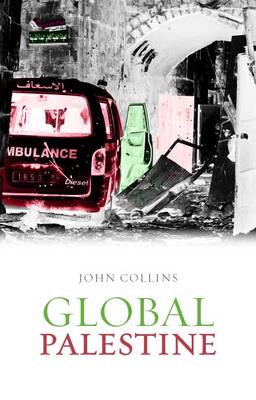Columbia/Hurst
1 total work
Global Palestine provides a unique perspective on one of the world's most enduring political controversies--the nature and extent of the rights owed to Palestinians--by exploring two deceptively simple questions: What does "Palestine" mean outside of local arenas, and how does the idea of "Palestine" drive larger social and political developments? To construct his answers, John Collins assumes three overlapping premises: that contemporary Palestine is the site of an ongoing project of settler colonization; that Palestine's global importance is increasing in inverse proportion to the size of the territory actually controlled by Palestinians (as the growing movement of international solidarity indicates); and that the supposedly local struggle over Palestinian rights in fact reflects four global processes shaping the conditions in which we live--colonization, securitization, acceleration, and occupation--and is therefore intricately connected to them. Collins finds these processes have not only influenced the idea and physical space of Palestine but also become profoundly altered through their interaction with theoretical conceptions of Palestine across the globe.
This outcome reflects an important emerging trend in global conditions, brought into sharp relief by Collins's expert analysis. His approach enables a fresh encounter with a new politics of violence, resistance, and solidarity arising from what Walter Benjamin once called "the tradition of the oppressed.
This outcome reflects an important emerging trend in global conditions, brought into sharp relief by Collins's expert analysis. His approach enables a fresh encounter with a new politics of violence, resistance, and solidarity arising from what Walter Benjamin once called "the tradition of the oppressed.
